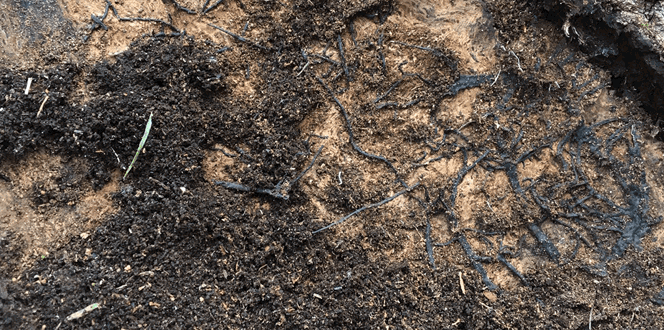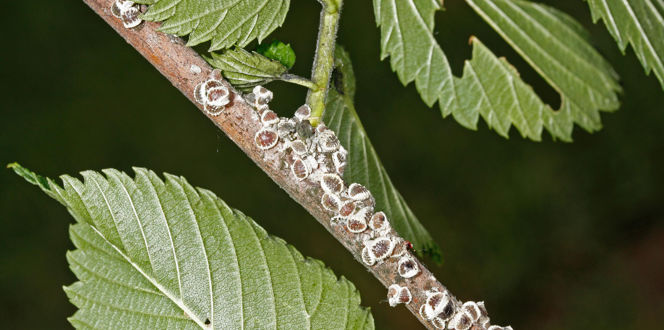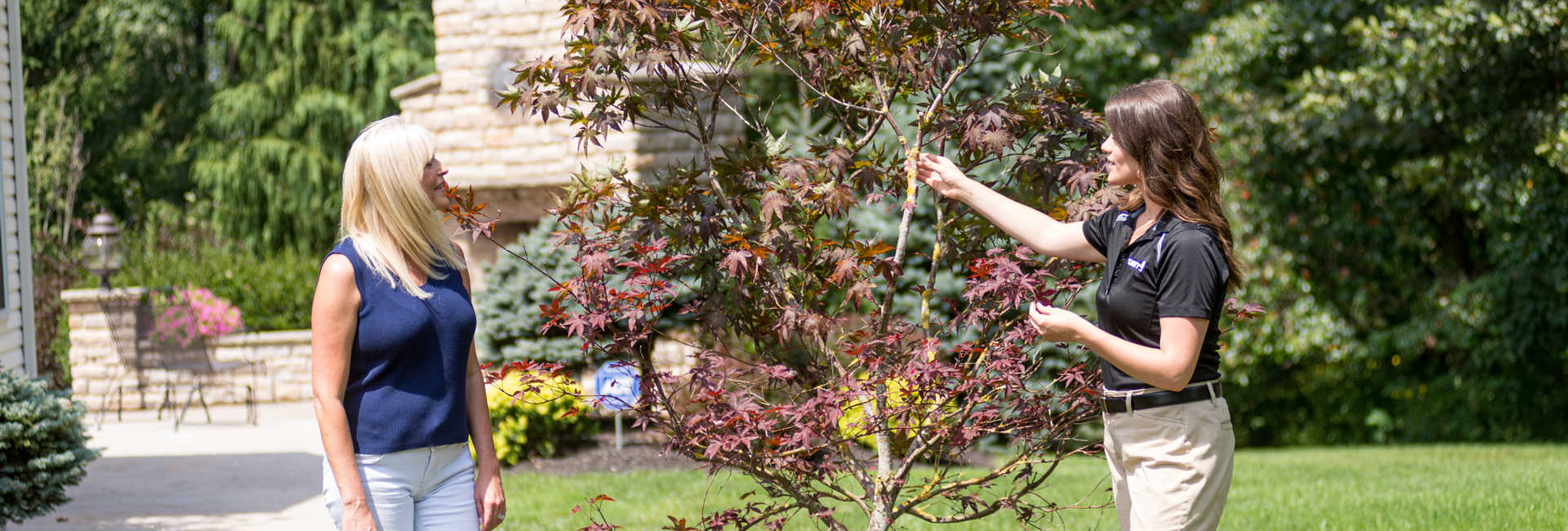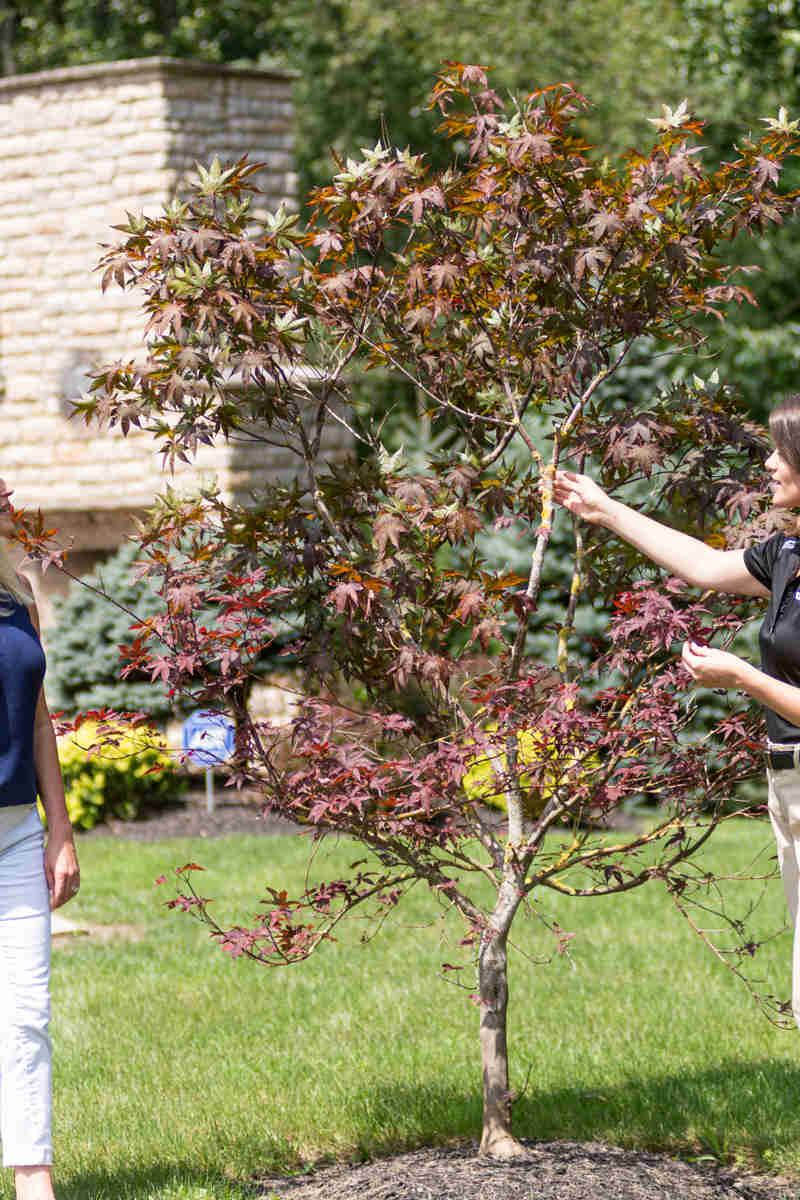Aphids Description:
Aphids, sometimes called plant lice, are soft-bodied, sucking insects. They tend to cluster in large colonies on new growth and come in a variety of species that may be green, black, red, orange, wooly, spotted or bow-legged.
Hosts:
Deciduous and evergreen trees
Biology & Symptoms:
Early season aphids cause leaf curling and new growth distortion similar to broadleaf weed herbicide damage. If there is a large aphid colony, twig dieback and stunting may occur. Many aphids excrete honeydew—a sugary substances that collects on lower leaves and objects underneath infested trees, such as cars, lawn furniture and sidewalks. Honeydew attracts a fungus called sooty mold. The fungus is not an actual plant pathogen as it grows only on the honeydew, not the plant. Sooty mold gives tree leaves and branches a black, sooty appearance. This fungus doesn’t injure the leaves, but it blocks sunlight which reduces photosynthesis. Lack of photosynthesis can cause problems such as premature leaf drop.
Aphid Control & Management:
Aphids are controlled through the use of horticultural soap treatments or other insecticides. Therefore, these treatments can ultimately stop honeydew and sooty mold from occurring. Lady beetles and green lacewings are natural predators of aphids, so it’s important to check for their presence and to make sure an insecticide that is detrimental to them is not used. Frequent inspections for aphids on susceptible plants should be done to reduce plant injury.





